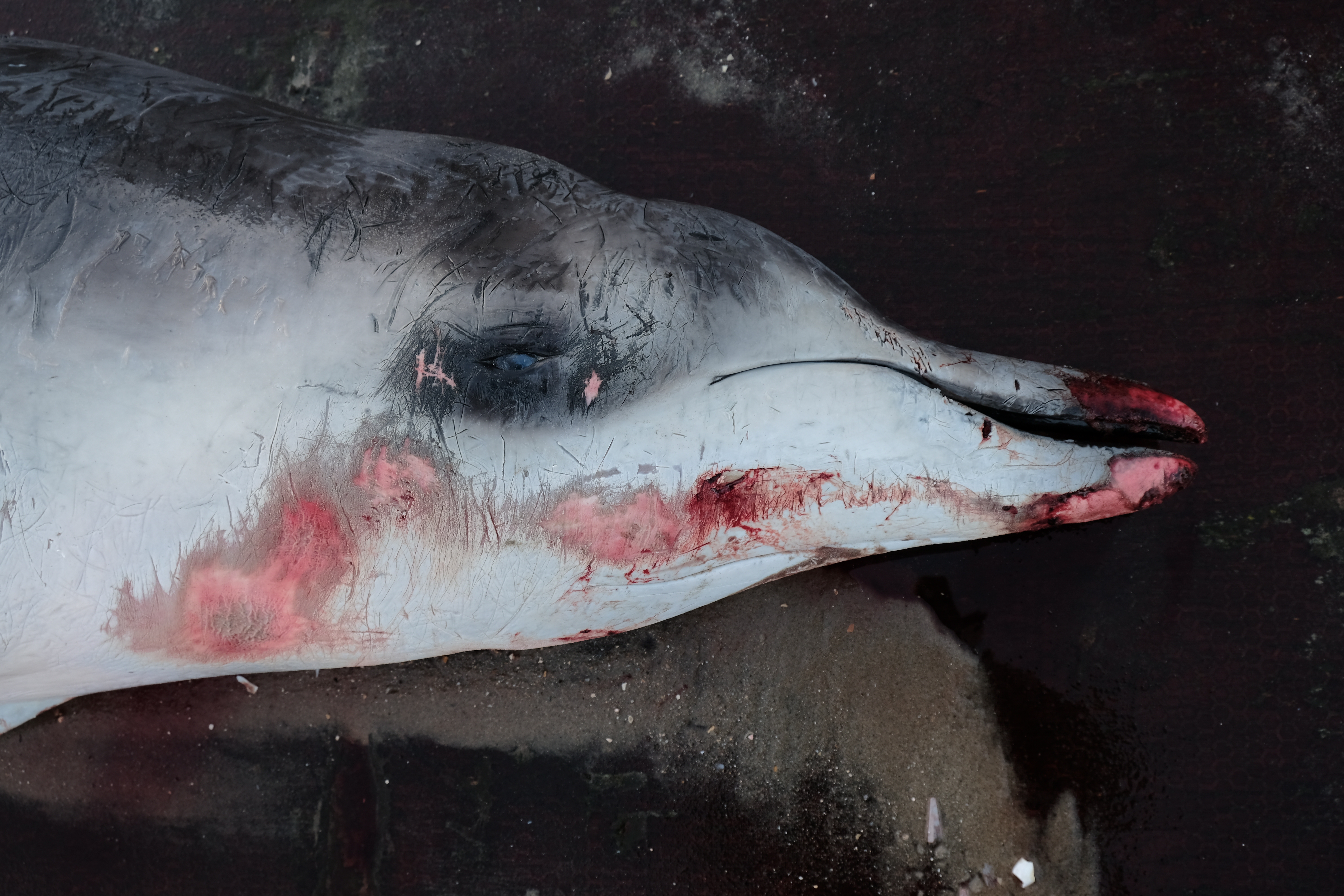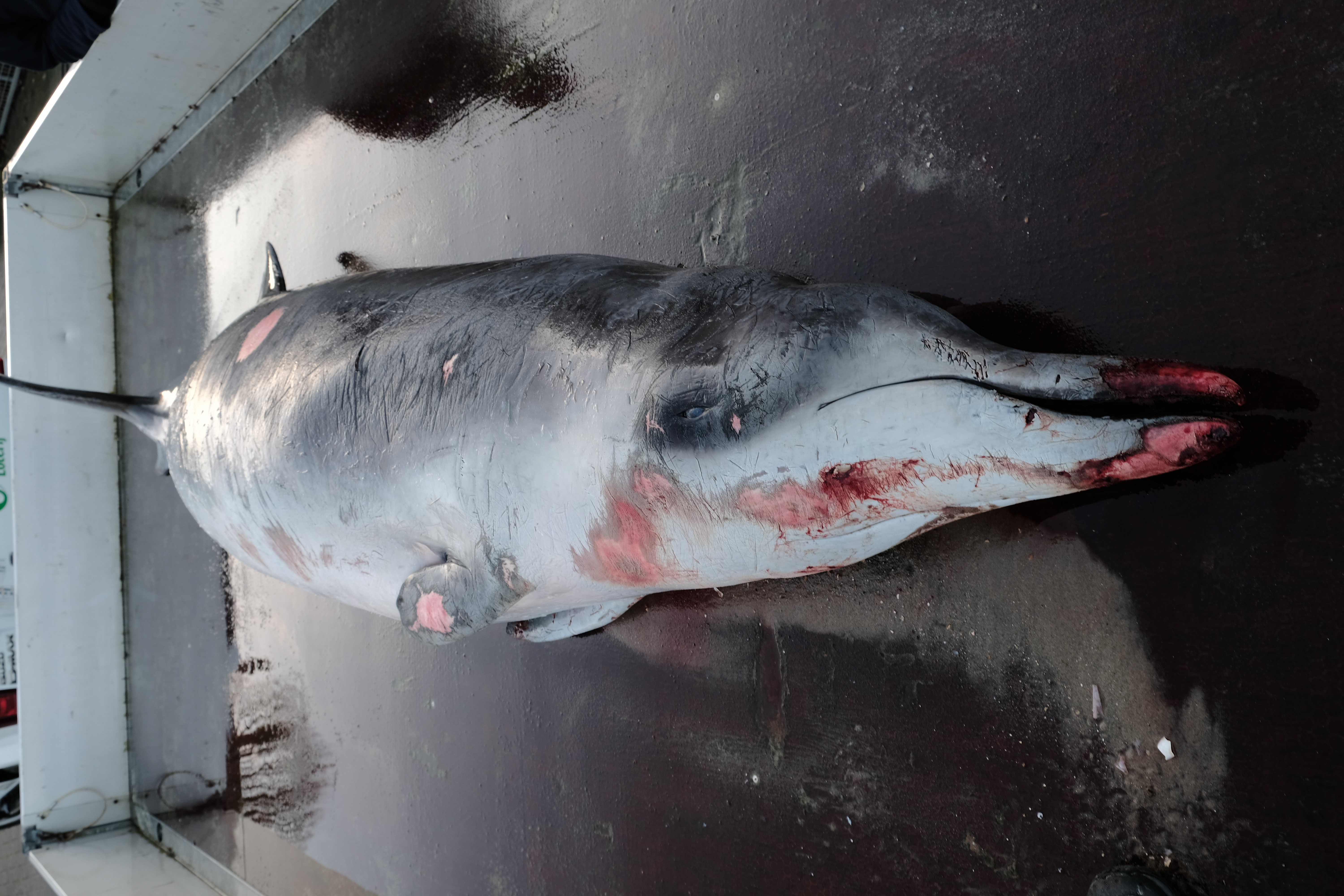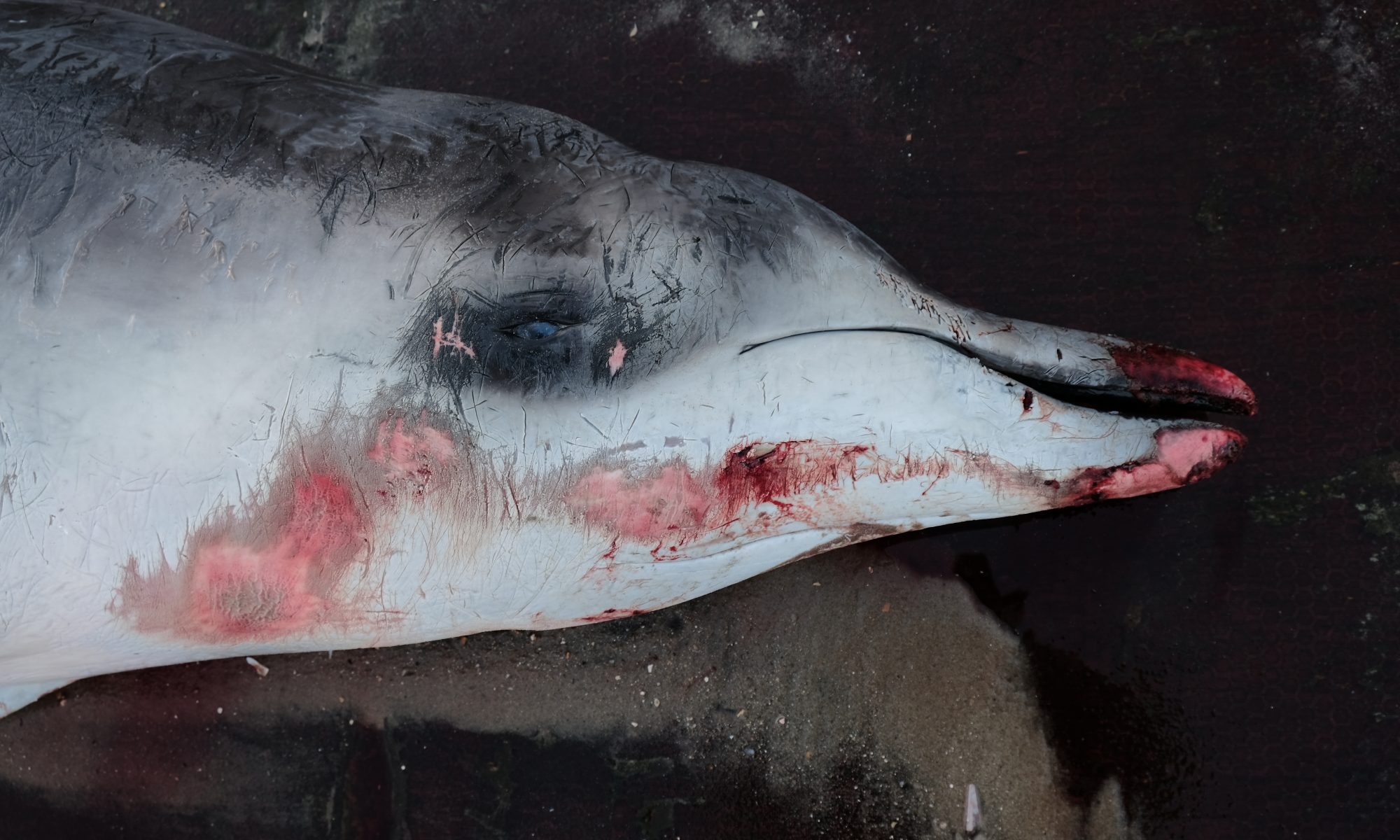On Wednesday evening 15 January a Sowerby’s beaked whale washed ashore in Ostend. An autopsy showed that the animal was probably still alive when it got into trouble in our coastal waters, no clear cause of death could be determined. Since shallow coastal waters are an unsuitable habitat for beaked whales, reports of the species have always been rare in Belgium. To date, only five previous cases of strandings of beaked whales in Belgium are known.

In the evening of 15 January 2020, late beachgoers found a stranded beaked whale near the eastern breakwater of Ostend. Unfortunately, the animal (which was first reported as a harbour porpoise, and later as a bottlenose dolphin) was already dead, and thanks to an efficient cooperation with the Ostend police, fire brigade and technical services, the carcass could quickly be transferred to the buildings of the Royal Belgian Institute of Natural Sciences (RBINS) in Ostend. From there, on Thursday morning 16 January, it left for the Faculty of Veterinary Medicine of Ghent University, where an autopsy was performed around noon. Meanwhile it was clear that it was an immature female of the Sowerby’s beaked whale (Mesoplodon bidens), with a length of 2.88 m and a weight of 240 kg.
Beaked Whales in Belgium
It is not often that pointed beaked dolphins are observed in the North Sea or washed ashore along the North Sea coast, which is not surprising. After all, beaked whales prefer the deep sea, and stay far away from coasts. A large water depth is more important than the absence of land, as the diet of beaked whales consists of all kinds of deep-sea organisms (mainly cephalopods, but also deep-sea fish and crustaceans). Thus, around islands in deep-sea areas, where water depths increase rapidly with distance from the coast, beaked whales can be observed relatively close to the coast. However, the shallow waters of the North Sea (especially the southern part) cannot be considered their familiar habitat.
In Belgium only five previous strandings of Sowerby’s beaked whales are known (and no observations of live animals at sea). In two cases these were mother-calf pairs: in August 1835 in Ostend, in August 1933 in Wenduine (mother + calf), in August 1954 in De Panne (pregnant female), in February 1969 in Heist and in October 1972 in Bredene (mother + calf). All these animals washed ashore alive, but died shortly afterwards (the calf of 1972 at Bredene survived a few days in the Harderwijk dolphinarium, in the Netherlands).
Cause of death?
« The autopsy found no evidence of a recent trauma that could be cited as cause of death (e.g. collision, drowning in a net), and confirmed that the animal was healthy until shortly before death ». explains Jan Haelters, marine biologist and marine mammal expert at RBINS. « It therefore seems plausible that the Ostend beaked whale was still alive when it got into trouble in the coastal waters, and that the grazes on the animal were caused by scraping of the body against the stones of the breakwater. However, nothing was found in the stomach (not even plastic or other items), which illustrates that the animal had not found food for a while and that it had no bright future anyway. All beaked whales on the Belgian list probably underwent the same fate ».

Some of the skulls of Belgian beaked whales are stored at RBINS, which also has an extensive collection of fossil remains of beaked whales. Here they remain available for scientific research (e.g. https://www.naturalsciences.be/en/news/item/2880), and occasional exhibition (e.g. https://www.naturalsciences.be/en/news/item/17771/). The skeleton of the new Ostend beaked whale will be used at the University of Ghent as didactic material in the veterinary training.

